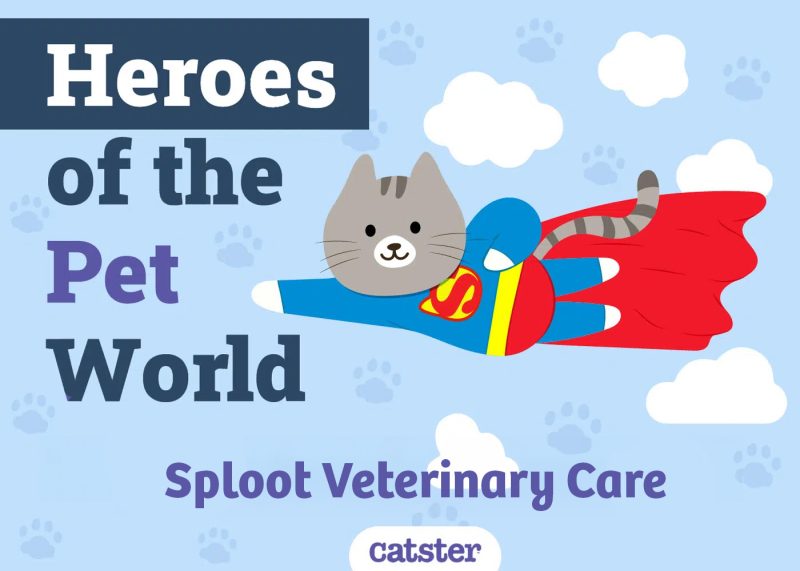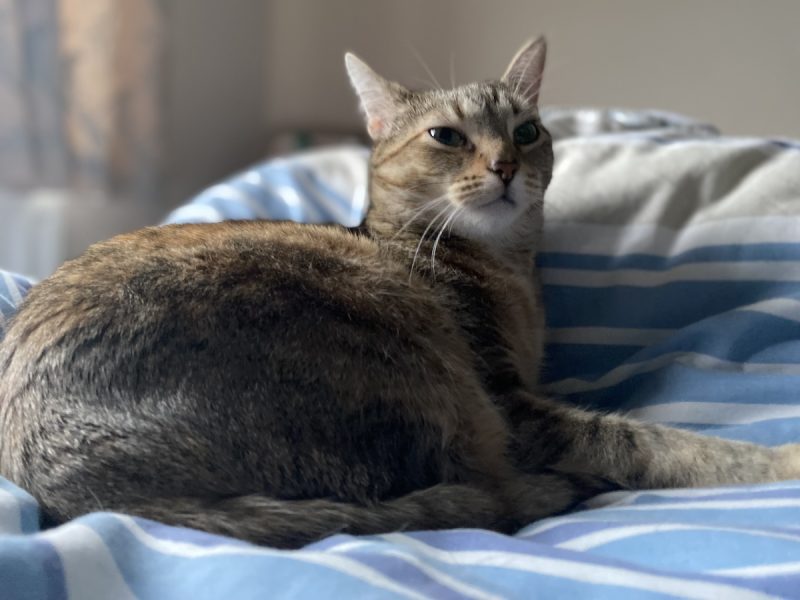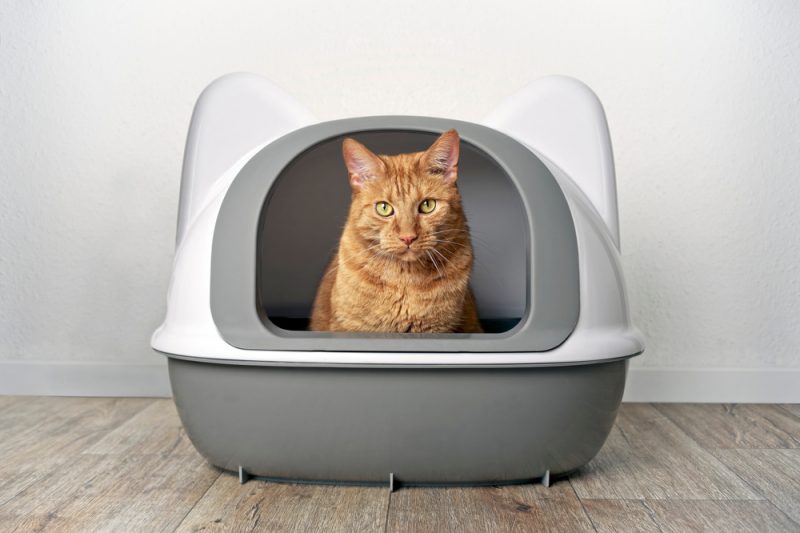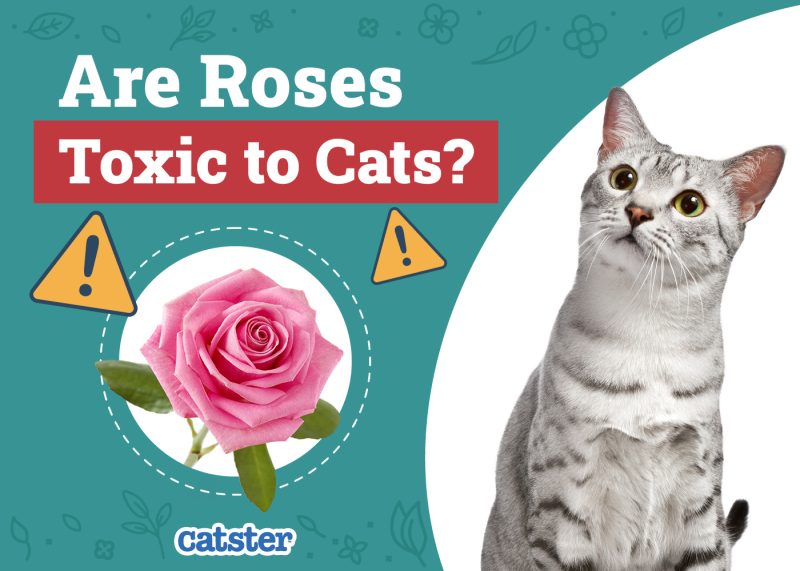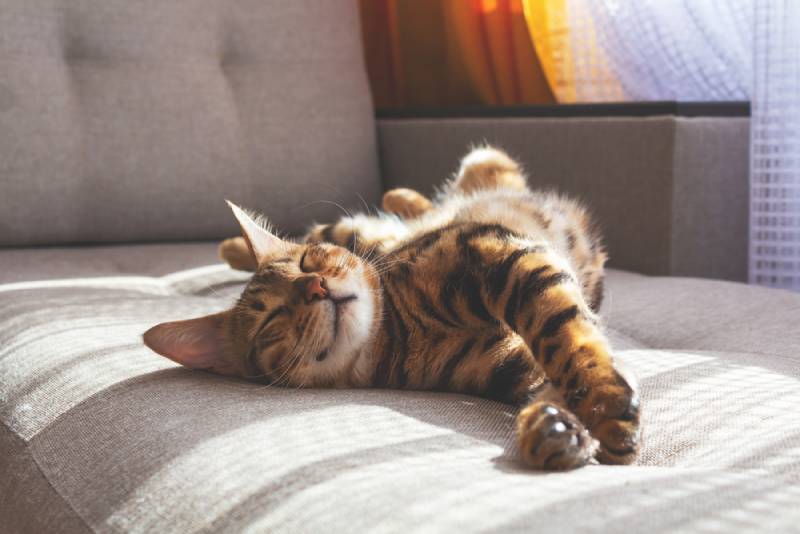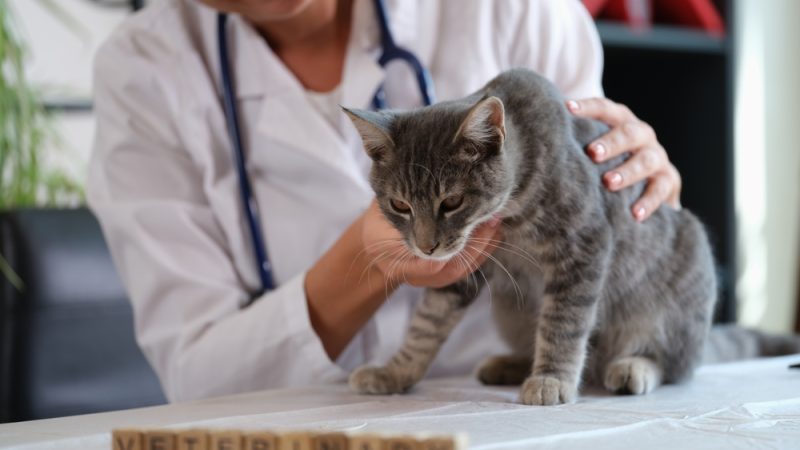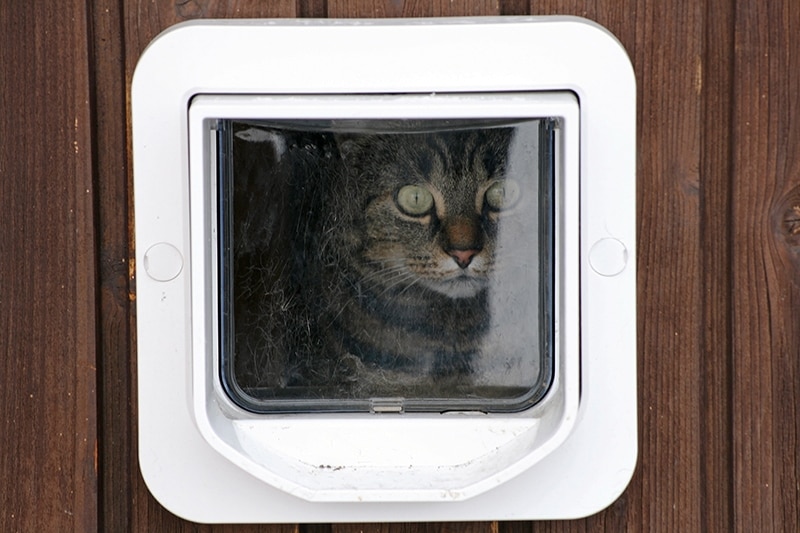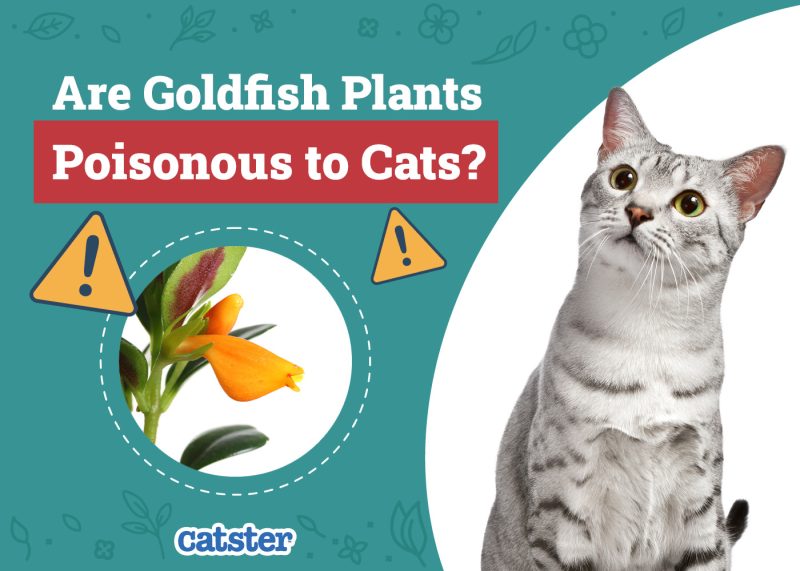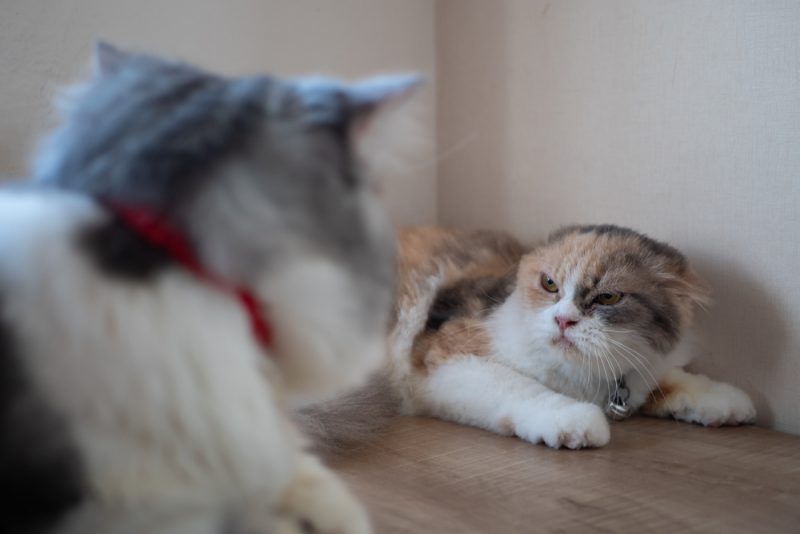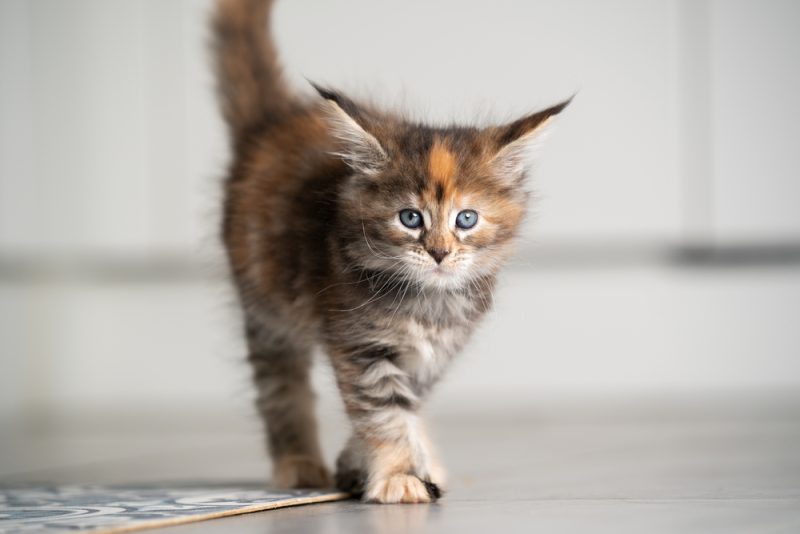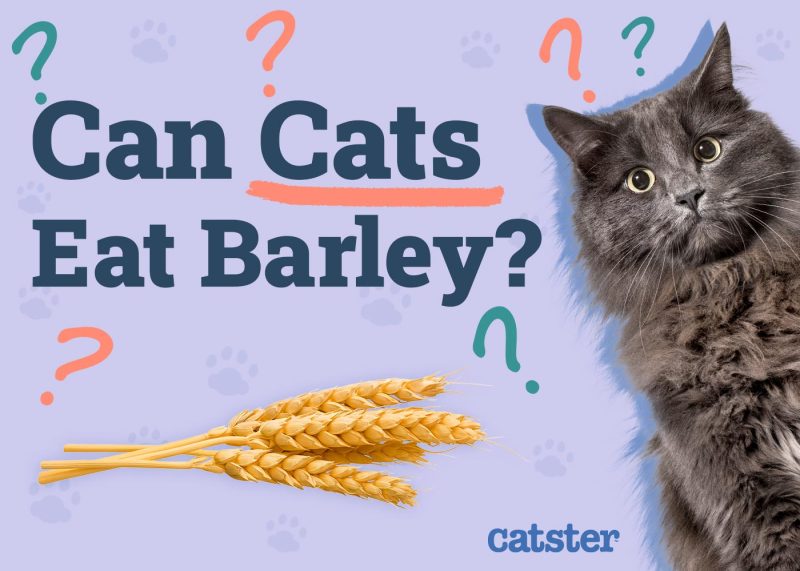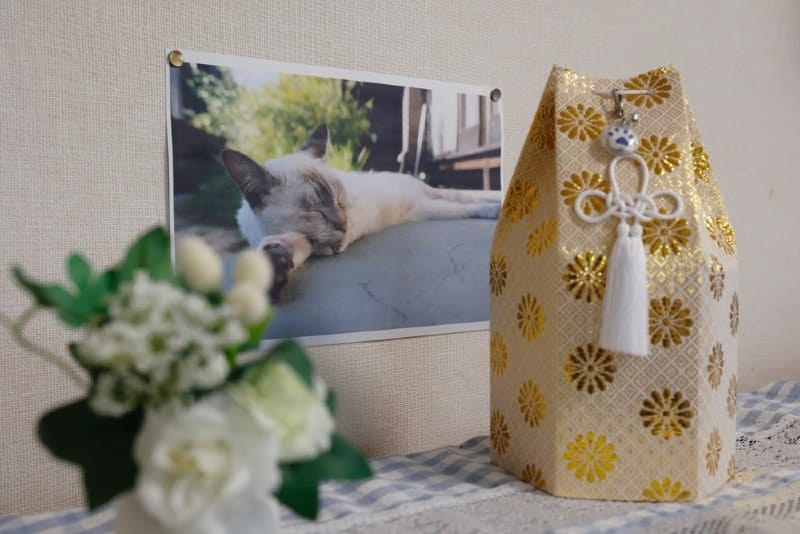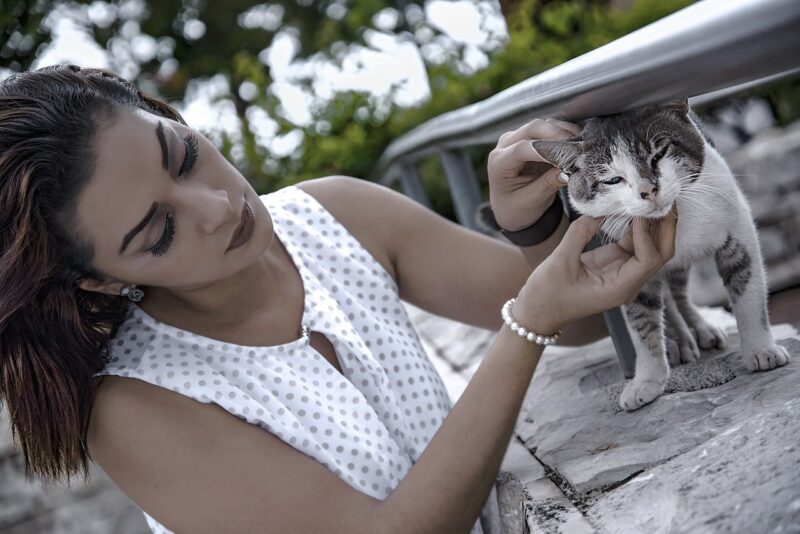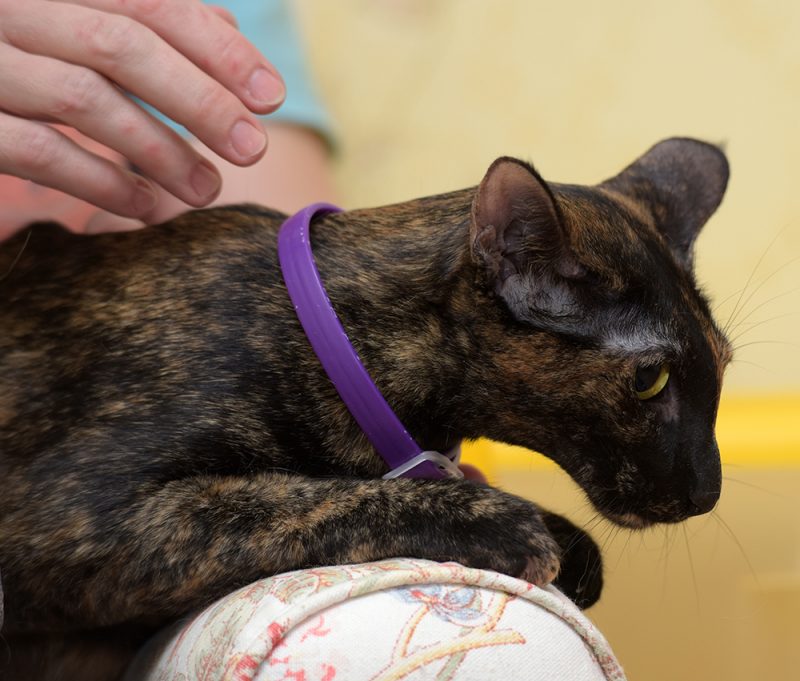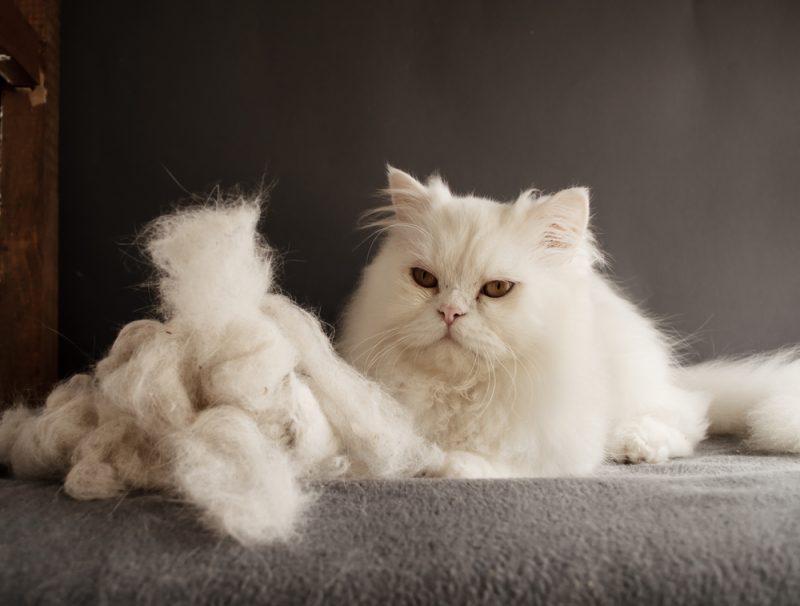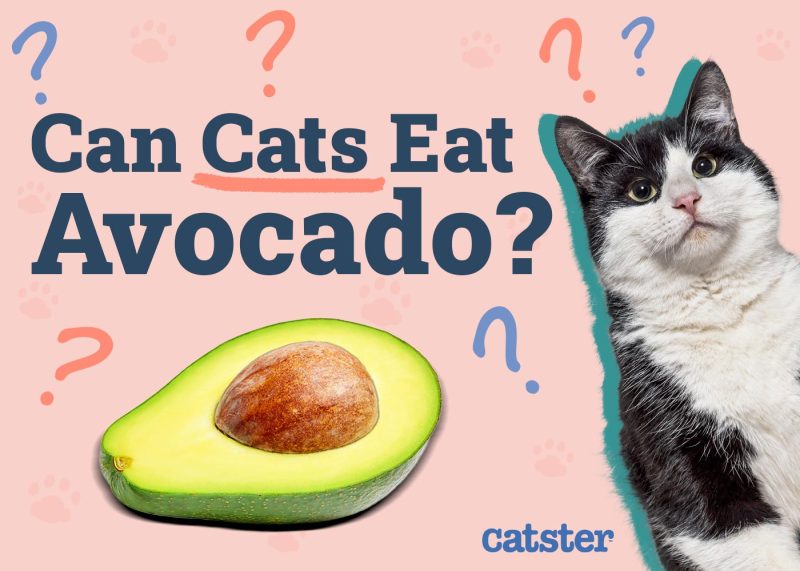In this article
View 5 More +Veterinarians, vet technicians, practice managers, rescuers, behaviorists, nutritionists, trainers, volunteers, and other animal professionals are the backbone of pet ownership. Helping pets and their families live in harmony and health together.
Catster wants to highlight some of these underrated champions of the animal world. Who we like to refer to as Heroes of The Pet World.
We plan to interview some of the most inspiring vet clinics, animal hospitals, animal shelters, and rehabilitation organizations worldwide to share their wonderful and often harsh experiences while working to help, heal, guide, revitalize, and protect our furry family members.
These are the stories of unsung animal superheroes!

Let’s get to know Sploot Veterinary Care!
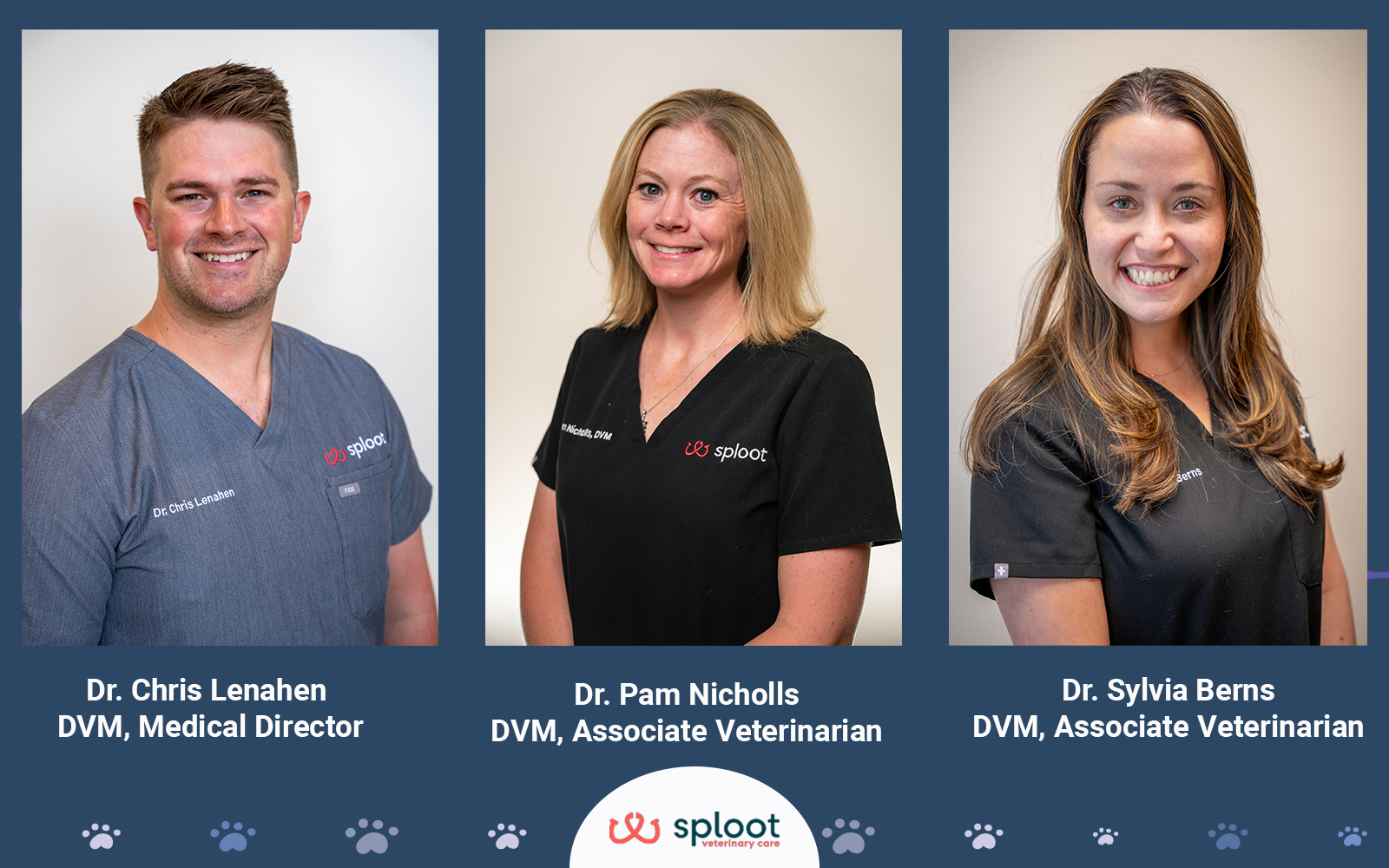
Mission
In your own words, what is Sploot Veterinary Care’s mission and purpose?
“Sploot Veterinary Care’s goal is to provide uncompromised veterinary care for the pets in our community and to elevate the veterinary visit experience for pet owners – all under one roof for seamless care.”
Dr. Chris Lenahen, DVM, Medical Director, Sploot Veterinary Care
“Sploot Veterinary Care’s mission and purpose is to provide personalized and compassionate care to all of our patients and pet parents—while maintaining the highest quality of medicine and contributing positively to our community. Our next-level care blends expertise with compassion to keep pets thriving.”
Dr. Sylvia Berns, DVM, Associate Veterinarian, Sploot Veterinary Care
“To provide pets and their parents with the best veterinary experience by fostering a supportive and positive work environment for caregivers. With same or next-day appointments every day, we make care easy and accessible when you need it. ”
Dr. Pam Nicholls, DVM, Associate Veterinarian, Sploot Veterinary Care
What is your individual mission or goal, as a vet professional and as a person?
“If I can go home at night knowing that I helped even just one person feel that because of the care they received from me, they feel more at ease with their pet, then I know that I have done my job.”
Dr. Chris Lenahen, DVM, Medical Director, Sploot Veterinary Care
“My individual mission or goal as a pet care professional is to make sure that pets are healthy and taken care of throughout their life. This allows them to carry on their strong bond with their pet parent for as long as possible.”
Dr. Sylvia Berns, DVM, Associate Veterinarian, Sploot Veterinary Care
“My goal is to provide each pet and their parent(s) with a veterinary visit tailored to their needs, goals, and budget while maintaining the highest quality of care.”
Dr. Pam Nicholls, DVM, Associate Veterinarian, Sploot Veterinary Care

Day-to-Day Experience
What is it like being a vet professional in Denver/ Chicago, and at Sploot?
“I come to work with the sole purpose of being able to lead my team and provide an exemplary standard of care for pets and their owners in our community. Being able to work for a company that reciprocates and takes care of me makes this a mutually rewarding job.”
Dr. Chris Lenahen, DVM, Medical Director, Sploot Veterinary Care
“I am given autonomy on how to practice medicine, while maintaining the gold standard of care. I am supported by a company that puts importance on work-life balance, maintaining a healthy and safe work environment in addition to allowing me to mentor the next generation of amazing veterinarians.”
Dr. Sylvia Berns, DVM, Associate Veterinarian, Sploot Veterinary Care
“Every day is a different day! I feel very supported at Sploot and have had the opportunity to expand my skills to include laparoscopic surgery and further mentorship of new and recent graduates. Although veterinary medicine is not without challenges, it is a very rewarding profession and I am lucky to be a part of it.”
Dr. Pam Nicholls, DVM, Associate Veterinarian, Sploot Veterinary Care
How big is your team?
“I am the Clinic Medical Director of the first Sploot clinic in the Highlands neighborhood in Denver with a team of 6 doctors and 10 nurses. I am also the Clinic Medical Director of one of our newest clinics in the Belmar neighborhood in Lakewood with 3 doctors and a budding team of 4-6 veterinary nurses.”
Dr. Chris Lenahen, DVM, Medical Director, Sploot Veterinary Care
“I work in multiple areas including as a veterinarian associate on the clinic floor – where we have about 4-5 doctors on staff, with about 2-3 on a given day, and about 15-20 support staff team members per clinic. When I am working as CAMP (Coaching and Mentorship Program) Director, I am in the headquarters office where we have at least 20-30 team members working in HQ. ”
Dr. Sylvia Berns, DVM, Associate Veterinarian, Sploot Veterinary Care
“On any given day, I typically work with two to three skilled veterinary assistants or technicians. Each clinic is staffed with one to three doctors, so our clinic team can range from four people all the way up to 12-15.”
Dr. Pam Nicholls, DVM, Associate Veterinarian, Sploot Veterinary Care
Do you have staffing shortages and how do you deal with them?
“Our clinics in each city operate as a tightly connected ‘hive’ allowing us to seamlessly support one another when staffing shortages arise. Doctors and nurses alike need time for themselves or if they get sick, and being able to be supported through an ops team to fill those shifts is quite helpful.”
Dr. Chris Lenahen, DVM, Medical Director, Sploot Veterinary Care
“Our clinics work as a unified team, with a core staff at each location and centralized staffing to ensure seamless support across sister clinics and uninterrupted care. Attracting top talent is key to this approach – we focus on building a strong, engaged team by fostering a great work environment and ensuring Sploot is one of the best places in the veterinary field to work.”
Dr. Sylvia Berns, DVM, Associate Veterinarian, Sploot Veterinary Care
How many animals on average do you help on a weekly basis?
“I personally see approximately 30-45 patients per week.”
Dr. Chris Lenahen, DVM, Medical Director, Sploot Veterinary Care
“If my week is primarily surgery days, I will see 12 to 20 patients. If my week is primarily appointments, I will see 40-55 patients. “
Dr. Pam Nicholls, DVM, Associate Veterinarian, Sploot Veterinary Care

Challenges and Rewards
What is the hardest part of your job?
“The hardest part of my job is being able to pour out 100% of my mental and emotional capacity into my job but still be able to come home and provide that same level of dedication and support to my family and even myself. Many people outside of this field in particular are not aware of the challenges that many of us face despite seeming well and fine at work.”
Dr. Chris Lenahen, DVM, Medical Director, Sploot Veterinary Care
“The most challenging part of being a veterinarian, for me, is striking a balance between my job being my passion but still needing to recharge outside of work. I think that, for many veterinarians, we dream of becoming a veterinarian from a young age, but then when we’ve met that goal, we don’t know how to separate our profession from our personal life. So in short, work-life balance is a huge challenge for me.”
Dr. Pam Nicholls, DVM, Associate Veterinarian, Sploot Veterinary Care
What are some of the biggest challenges that your organization faces?
“This is a challenging profession with support staff that are relentless workers. Despite the love for animals, it is a profession that faces a lot of burnout and staff turnover.”
Dr. Chris Lenahen, DVM, Medical Director, Sploot Veterinary Care
“I would say right now it’s the amount of support staff – the Sploot word has gotten out so our clinics are continuing to be built and stay busy. We just have to keep up with the demand which I think we do a good job of, but this continues to remain a challenge. In such a demanding field, support staff (nurses) can also have high turnover rates with people exploring different career options.”
Dr. Sylvia Berns, DVM, Associate Veterinarian, Sploot Veterinary Care
What is the most rewarding part of doing what you guys do?
“No matter how many sick pets we see day in and day out, I will always remember the cases where, because of our hard work and actions, we helped save a pet’s life. It is an indescribable feeling seeing the joy of the pet owner as well as watching the pet live to see another day with their family.”
Dr. Chris Lenahen, DVM, Medical Director, Sploot Veterinary Care
“Seeing the bond between pet parents and their pets, and being able to support them in times of happiness, sadness, fear, anxiety, and more. Pets bring so much joy to so many of us that being able to play a big role in this is really like no other feeling.”
Dr. Sylvia Berns, DVM, Associate Veterinarian, Sploot Veterinary Care
“I am able to help pets and provide comfort and guidance to their parents on a daily basis, which is very rewarding and humbling. “
Dr. Pam Nicholls, DVM, Associate Veterinarian, Sploot Veterinary Care
What are some of the accomplishments or specific animals that have made a big impact on you as a person or on your team?
“It brings me great joy to help elevate others and provide mentorship and leadership to my team and colleagues. Being a part of CAMP (Coaching and Mentorship Program) as well as being Clinic Medical Director of two busy clinics is rewarding and gives me a sense of pride in what I do.”
Dr. Chris Lenahen, DVM, Medical Director, Sploot Veterinary Care
“Becoming the CAMP (Coaching and Mentorship Program) Director has been a huge accomplishment of mine as quality mentorship is often lacking and difficult to find in the veterinarian field once you graduate from veterinary school. Being able to coach New Grads on not only the medicine but also on how to be compassionate to pet parents, how to make self-care a priority to maintain a healthy work-life balance, and so much more has been my greatest accomplishment.”
Dr. Sylvia Berns, DVM, Associate Veterinarian, Sploot Veterinary Care
“What I saw my career looking like and what it looks like now are a stark contrast, and I’m so happy to be able to say that. I started as one of two clinicians in a very rural, mixed animal practice, and my quality of life and quality of medicine have improved so much since that time. I am now able to provide doctors with the support and mentorship that I lacked in the early years of my career. In summary, my previous experiences and past jobs have impacted me heavily both personally and professionally, and I’m happy to be able to promote positivity, support, and encouragement and foster healthier environments for doctors and staff members.”
Dr. Pam Nicholls, DVM, Associate Veterinarian, Sploot Veterinary Care
Future
What are Sploot Veterinary Care’s main goals for the future?
“To continue to elevate the profession while providing the highest standard of care for the communities it serves.”
Dr. Chris Lenahen, DVM, Medical Director, Sploot Veterinary Care
“To continue to provide personalized high-quality care to our patients and continue to support the community. “
Dr. Sylvia Berns, DVM, Associate Veterinarian, Sploot Veterinary Care
“To provide greater access to high-quality veterinary care through promotion and expansion while supporting healthy teams.”
Dr. Pam Nicholls, DVM, Associate Veterinarian, Sploot Veterinary Care
How can the general public help make your lives easier?
“Recognizing that by following up with their veterinarian on an annual basis for wellness health checks, they can ensure that if issues arise, we are able to intervene earlier and quicker than if the problem is already advanced and their pet is sick.”
Dr. Chris Lenahen, DVM, Medical Director, Sploot Veterinary Care
“They can purchase insurance for their pets – a lot of the time there are financial concerns, which is completely understandable as I know veterinary care is not cheap, however, this limits how well the veterinarian can diagnose and treat your pet. If pet parents have pet insurance, then they don’t need to think twice about giving their pet the best care possible. Also, increased empathy and respect for the veterinarian field and those who work in it – we have a tough job and it is often not full of rainbows, puppies, and kittens like many think it is.”
Dr. Sylvia Berns, DVM, Associate Veterinarian, Sploot Veterinary Care
“Communicating respectfully and being assertive in expressing their goals and needs for their pets is always incredibly helpful in establishing a plan that is beneficial to pets, their parents, and veterinary staff. And calling in refill requests before they’re out of medications!”
Dr. Pam Nicholls, DVM, Associate Veterinarian, Sploot Veterinary Care
Stories
What are some of the funniest or most outrageous pet names you’ve encountered?
“Bill Pickle Murray, Captain Spaghetti, Ike Chocolate Daddy, Catrick Swayze → (one of my favorites!)”
Dr. Sylvia Berns, DVM, Associate Veterinarian, Sploot Veterinary Care
“A pair of French Bulldogs named Eddie Murphy and Kevin Bacon are the most memorable ones I can think of right now.”
Dr. Pam Nicholls, DVM, Associate Veterinarian, Sploot Veterinary Care

How to Help
If someone wants to visit, join, support, or volunteer at your organization, where can they find more information and get in touch?
“I would encourage them to reach out to our People Operations department or our Talent Acquisition team for those interested in an externship or employment at Sploot. If you are a prospective veterinarian or veterinary technician in high school or college, consider volunteering at your local animal shelter or consider supporting a local animal rescue in your community as well.”
Dr. Chris Lenahen, DVM, Medical Director, Sploot Veterinary Care
Anything else you’d like to tell the cat community?
“Cats may hide their feelings and not tell us a lot at home, but many times they are telling us more than we could ever think when they are less social, are hiding, or stop eating. If you see changes in your cat’s day-to-day behavior, reach out to our veterinary team and we can help determine if there is anything to be concerned with.”
Dr. Chris Lenahen, DVM, Medical Director, Sploot Veterinary Care
“Cats are in need of veterinary care just as much as dogs are. Annual exams are extremely important, in addition to routine screening of bloodwork and urine as the sooner we can detect a disease or abnormality, the faster we can treat/attend to it resulting in better outcomes. Also, dental disease is real, and at-home dental care along with regular COHATs (Comprehensive Oral Health Assessment and Treatment) are very important in keeping your cat’s teeth as beautiful and healthy as possible.””
Dr. Sylvia Berns, DVM, Associate Veterinarian, Sploot Veterinary Care
“Common problems for cats include dental disease, heart disease, and kidney disease, all of which can be detected early with annual to semi-annual examinations. We recommend comprehensive bloodwork and urinalysis annually, at minimum. Additionally, we have many options for stress management to make feline visits less traumatic for both cats and their owners, so feel free to call ahead to discuss these options!”
Dr. Pam Nicholls, DVM, Associate Veterinarian, Sploot Veterinary Care
